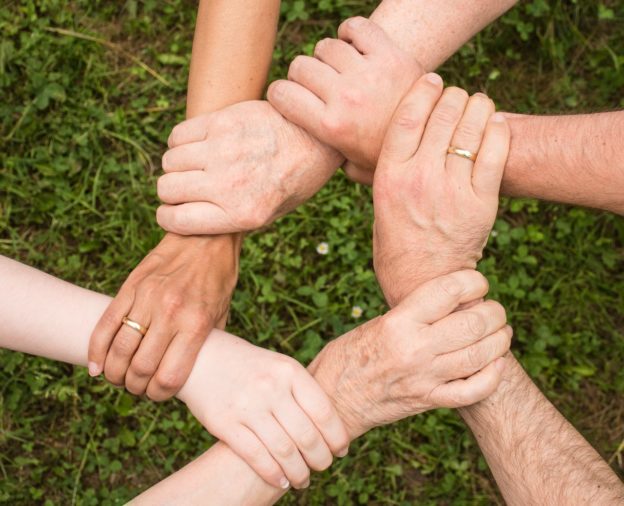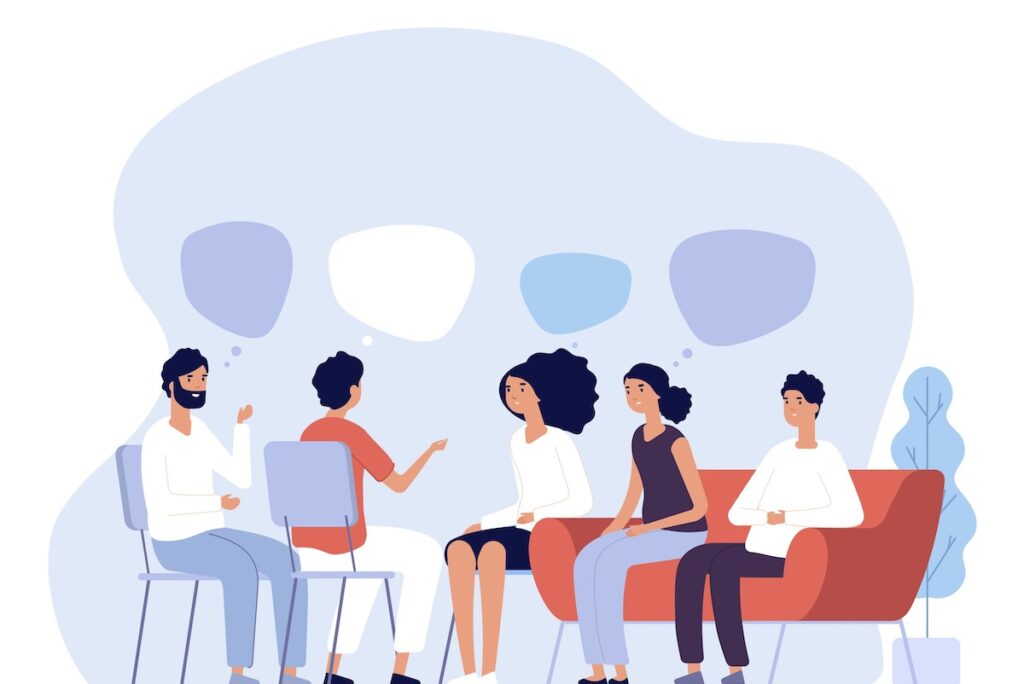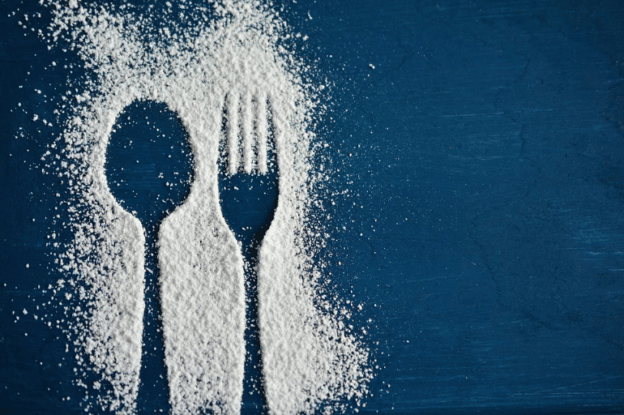Addiction and suicide present a very complex relationship. Experiencing suicidal thoughts have the power to lead and increase the risk of addiction. Similarly, addiction has the potential to increase the risk of suicide. Substance abuse and suicide also have a tricky dynamic involved with depression. It’s important to note before reading this article that there is hope, you are not alone, and numerous suicidal treatment centers are looking to deliver support and care.
What Is Substance Addiction?
Substance addiction, also known as drug addiction or a substance use disorder, is a disease that affects an individual’s behavior and brain. This is because substance addiction causes people to not be able to control their use of legal or illegal drugs.
When an individual is addicted to a substance, he or she might continue to engage in substance abuse despite the harm it may cause. Addiction can begin with the experimental use of recreational drugs in a social situation. For some individuals, from that first encounter, drug use becomes more frequent. Other individuals, especially those engaging in opioid use, might even start abusing substances because they received medications from friends or relatives who have been prescribed the medications.
The actual risk of substance abuse and addiction varies depending on the drug and how addictive it is. It also varies depending on how susceptible to developing a substance addiction a person is. There are some drugs, such as opioid painkillers, that quickly cause addiction and are, in turn, riskier to use altogether.
What is Drug Dependency?
As time goes by, you might find that you desire and need higher doses of drugs to feel high.
Once this occurs, individuals engaging in substance abuse might discover that they need drugs to even feel sane. As such people’s drug use continues to increase, it might become progressively more challenging for them to go without the use of drugs.
When a person attempts to stop drug use altogether, that can cause severe drug cravings and make the person physically sick. When a person experiences cravings for a drug when minimizing or discontinuing use of it, that person is experiencing withdrawal symptoms. This means that that person is dependent on that drug.
Once individuals develop drug dependency, substance addiction isn’t too far behind. This is why it’s crucial to enter into an addiction treatment center for help once one feels any sort of dependency or addiction.
What Are Signs That a Person Is Suicidal?
There are numerous signs that a person is suicidal. Similarly to every individual that is different who contemplates suicide, the warning signs that people might display are different. There are, however, “classic” suicide warning signs that some individuals demonstrate before taking their own life.
Some individuals disclose no suicidal warning signs publicly. In fact, an individual will rarely present a full range of the suicide warning signs listed here today. Many of the individuals that do display suicide warning signs though do not attempt or fall victim to the thief that is suicide.
The Most Common Warning Signs That a Person May be Suicidal
- Abandoning hobbies and other sources of enjoyment
- A sudden decrease in academic and work performance
- Expressing a feeling of being trapped or desire for death
- Isolation from friends and family
- Heavy alcohol and drug use
- Acting anxious or agitated
- Avoiding social situations
- Reckless behavior
- Extreme irritability
- Hopelessness
- Insomnia
What Are Some Other Warning Signs?
Many individuals will give warning signs or signals of substance addiction and suicide plans. The best thing that you can do to prevent a loved one from committing suicide is to be aware of suicidal warning signs. Once you learn how to respond to such warning signs appropriately, such knowledge can indeed be very helpful.
Other warning signs of suicide include:
- Sudden personality changes and drastic mood swings
- Loss of interest in day-by-day activities
- Getting affairs in order, saying goodbye
- Sleeping and eating pattern changes
- Self-destructive behavior
- A sudden sense of calm
- No hope for the future
- Talking about suicide
- Self-hatred
If you spot any suicide warning signs in a loved one, you could be faced with the heavy decision of deciding if you should say anything or not. However, it’s fair to say that an individual that talks about suicide often or shows many suicide warning signs needs immediate assistance. Luckily, there are rehab facilities that treat addiction and suicide.
You talking to the individual that is struggling with addiction and suicide will likely not make the situation worse. In fact, it instead will likely make the situation better. When you’re able to show that you care about a person’s struggle with addiction and suicide, it gives the person struggling the opportunity to open up to you and discuss his or her feelings. This, in turn, could actually prevent a person from committing suicide.
If a loved one confesses to you about his or her addiction and suicide thoughts, help enroll your loved one in professional treatment centers for suicidal patients. Also, provide your loved one with support and empathy. Let your loved one know that he or she is not alone and that you deeply care.
How Can Substance Addiction Cause Suicidal Thoughts?
Substance addiction can cause suicidal thoughts in various ways. Addiction and suicide have an interconnected and close relationship along with depression. Over 90% of the individuals that fall victim to suicide struggle with depression, have an active substance abuse disorder, or both.
When you think of substance abuse and suicide, it’s imperative to understand that the relationship between the two is dangerous. Both can trigger the appearance of the other.
People that suffer from mental illness conditions such as obsessive-compulsive disorder, major depression, and bipolar disorder often turn to alcohol, drugs, and gambling, along with numerous other high-risk activities as a way to alleviate their negative feelings or numb their pain. Unfortunately, though, substance addiction increases the duration and severity of depressive episodes. Thus, while one is gaining temporary relief, the likelihood of suicidal thoughts or ideation is increased. Furthermore, suicidal ideation is aggravated by the fact that addiction usually destroys or damages professional, financial, personal, and familial relationships.
What Age Group Is Most Suicidal?
The age group that is the most suicidal is young people, ranging from around 10-34. Suicide is one of the leading causes of death amongst Americans. It is the second leading cause of death among Americans in the age range of 15-34 and the third leading cause of death among Americans in the age range of 10-14.
Suicide is the intentional ending of one’s own life through one own’s actions. Suicide is considered to be one of the greatest health epidemics in the nation by numerous professionals in the medical field. In 2019, about 45,511 died from suicide in America. Suicide rehabilitation at treatment centers for suicidal patients is one of the main ways to combat this issue.
Does Therapy Work for Suicidal Thoughts?
Therapy works tremendously for suicidal thoughts. Suicidal ideation and previous suicide attempts can take quite an emotional toll on an individual and the people close to him or her. It’s even possible that a person struggling with addiction and suicide can become so engrossed with suicidal thoughts that they’re no longer able to function on a day-by-day basis.
Previous suicide attempts can leave permanent scars on the person struggling with substance abuse and suicide, along with crippling injuries such as organ failure and brain injuries. Thus, the sooner an individual that suffers from addiction and suicide enters suicide rehabilitation, the better. Not only can suicide rehabilitation and addiction treatment save a life, but they can also assist people in moving past dark times in their lives.
For individuals who are struggling with suicidal ideation, a suicide treatment facility that offers inpatient treatment can be helpful. Through this type of treatment method, individuals that are struggling with suicidal ideation will be able to:
- Receive the type of therapies needed to get to the root of what is causing their suicidal thoughts
- Undergo treatment for the presence of their substance abuse problems
- Receive any medication they might need
What Are the Effects of Suicide and Suicidal Thoughts?
The long-term effects of suicidal thoughts can present to be extremely catastrophic for all parties that are involved. They might include the following:
- Damage to all organ systems
- Brain damage and death
- Severe injury
- Seizures
- Coma
The Effects on Suicide Survivors
There has been recent research that has indicated that for each successful suicide attempt, there are about 6-8 loved ones who are left behind. They are called suicide survivors and they are often consumed by several conflicting emotions such as:
- Grief over losing someone they care about
- Anger
- Guilt
Other Effects
- Intense feelings that they could have prevented the loss of their loved ones
- Complicated grieving
- Deep depression
- Extreme guilt
- Shame
- Anger
Who Can I Contact if I Have Suicidal Thoughts?
If you are having suicidal thoughts, you can contact The National Suicide Prevention Lifeline 24/7 at 800-273-8255. They are available for you for free, all hours of the day and night. There are so many organizations that are dedicated to suicide prevention. Countless resources are here to help. It’s paramount that you also enter into one of the many suicidal treatment centers.
What Does a Therapist Do if a Patient Is Suicidal?
The initial first step that a therapist will do if a patient is suicidal is to talk with him or her and listen carefully as the patient tells his or her story. There might be a test performed to evaluate how suicidal the individual might be. Depending on the suicide treatment facility, the individual might be asked to fill out paperwork surrounding suicide.
Therapy will be able to fully get to the root of the problem at suicidal treatment centers. One of the most effective forms of therapy there is family therapy. This is because oftentimes suicidal individuals resort to isolation. This therapy though will further remind individuals that they are not alone. Families might also be able to provide the therapist with some insight on the cause of the individual’s suicidal attempts, and what could change to make their lives better.
Once the family provides the necessary support at treatment centers for suicidal patients, they will be able to help that person from sliding back into an isolated mode. Typically, the family is asked to agree upon working with the individual to transform the family dynamics into one of mutual encouragement, light, support, and hope. Furthermore, for the individual struggling with suicidal ideation, the therapist, and the family act as a solid team to improve relationships and lives.
Beat Suicide Ideation at a Suicide Treatment Facility
It’s important to remember that you are a whole person, not just a collection of symptoms, issues, and problems. By attending suicide rehabilitation, you are able to focus on becoming the best version of yourself again. It’s possible to be a person that’s free from addiction and that’s able to cope when life matters. Call now to hear more about addiction and suicide rehabilitation.
References:
https://recovery.org/drug-treatment/suicidal-thoughts/
https://www.aamft.org/Consumer_Updates/suicidal_thoughts.aspx#:~:text=Initially%2C%20the%20therapist%20will%20talk,suicide%20without%20first%20seeking%20help.













